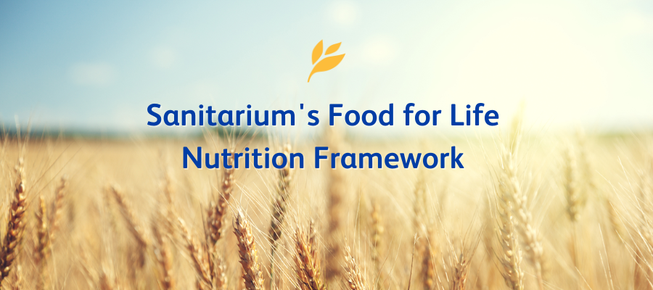One of the first ever controlled medical trials was carried out by naval surgeon James Lind on board the HMS Salisbury in 1747. Lind concluded that citrus juice was the most effective treatment for scurvy, a painful and potentially fatal disease that was common among sailors, caused by vitamin C deficiency.
Lind’s discovery was a great breakthrough for medical science, and led to the development of many similar lifesaving treatments and a better understanding of the individual nutrients of foods. But it also led to a focus on those individual nutrients, rather than seeing each food as a whole “package” of vitamins, minerals, dietary fibre and other good things.
While recognising that a food’s single components (eg calcium, iron, vitamin A) can be important in treating nutritional deficiencies, Sanitarium concentrates more on the “big picture” of the benefits of whole foods. By that, we mean plant-based foods such as wholegrains, fruits and vegetables, legumes, nuts and seeds that are as close to their natural state as possible.
But what about processing? Yes, Sanitarium does have to process plant foods to make them more convenient to buy and easier to digest (eg we make whole wheat into Weet-Bix), but we make sure the processing is minimised as much as possible.
We believe that a diet consisting of a wide variety of whole plant foods can provide the best possible nourishment, enhanced quality and length of life, and proactively contribute to environmental sustainability.
Let’s take a closer look at this.
The best possible nourishment
Whole plant foods are made up of thousands of constituents, and eating a wide variety of these foods gives our bodies the best opportunity to keep all these constituents in perfect balance as they are digested and distributed according to our bodies’ needs.
Enhanced quality and length of life
Whole plant foods work together as part of a plant-based diet to help keep you in good health. If you eat mostly whole plant foods, you will be getting more of the nutrients you need, and less of the calories you don’t need. The very least this will do is help you to maintain a healthy weight, which alone can greatly cut your risk of “lifestyle” diseases such as type 2 diabetes, heart disease and some cancers.
Proactively contribute to environmental sustainability
Research tells us that if more people around the world cut down on refined sugars, refined fats, oil and meat, we could reduce agricultural greenhouse gas emissions, cut the need for land clearing, and protect animal species that are otherwise at risk due to habitat loss.
So eating more whole plant foods is not just good for our health, it’s good for the health of our planet too.


